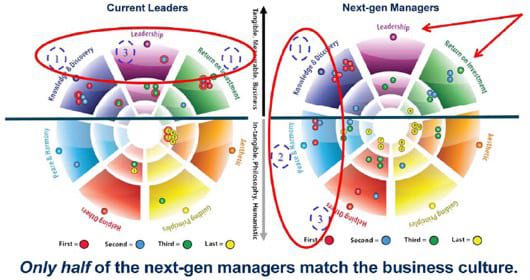Join STM’s Mailing List
Don’t miss any of our informative articles, news, or updates. Sign up to receive emails from STM today!
Introverts or Extroverts? Which One Makes the Best Employee?
About 20 years ago, when I first began using assessments as a coach, I’m embarrassed to say that when my introverted client asked me, “is there anything good about being an introvert?” I fumbled the answer. She was compelled to ask because the assessment we used at the time tended to celebrate the virtues of being a dynamic, outgoing, results-oriented, chatty, and friendly individual and mentioned that introverts were good team players. My client was a successful manager and had a lot more going for her than just being a good team player!
Fortunately, we have long since upgraded our tools and 13,000 assessments later, I have a better answer. Introverts are better at many things than extroverts, but they have one big obstacle to overcome. America is an extroverted culture, extroverts tend to get noticed in every meeting and every event, they are self-promoters and if you failed to notice their outstanding performance in the meeting, they will be sure to tell you!
We have a favorite case study that highlights this exact problem. Take a look at the graph below. The current leadership team (left graph) tends to be extroverted and strongly business-focused. Those assumed to be the “next generation management” (right graph) tends to be extroverted but NOT business-focused. So, one would expect the current leaders would notice the lack of business focus (particularly the lack of ROI thinking) and pass on this batch of potential leaders, but that’s the opposite of what happens.
However, they have potential next gen managers who are introverts and strongly motivated by business factors including ROI (right graph, notice the arrows). Motivationally, they are a perfect match to the owners, but the owners don’t see this. They are in danger of selecting exactly the wrong candidates to promote to leadership. The self-promoting extroverts don’t fit the culture and the introverts who do fit and are the RIGHT next gen management team are just quietly going about their work.
Wait! Do we really want leaders who are not self-promoters and who may not be the most sociable or approachable communicators? Shouldn’t the answer be, find the right extroverts to lead the company?
The right answer is, the strongest teams are made up of both introverts and extroverts, because each group represents about half the general population. Extroverts may excel at interacting with a gregarious and outgoing marketing department, and your introverts may communicate better with the quieter, more reserved engineering department. But going back 20 years and answering my client’s question correctly, I should have said, introverts are great listeners, they take their time and come up with more accurate answers, and they are great team players because they keep their emotions in check. They tend to be tireless workers who stay on a problem until it’s solved. They don’t waste time at the water cooler telling jokes or sharing stories from their last party. They’re patient coaches and teachers. These are all great qualities for most professional and management positions, don’t you think?
The problem for the introvert often comes from the decision makers above them who may find the introvert too slow in his or her decision making, or frankly too dumb–that is, I ask an extrovert a question and get an answer instantaneously! I ask the introvert, she looks at me with a blank stare, and tells me she has to get back to me! Behavior is all about perception, the introvert appears smart and accurate to a fellow introvert, and the extrovert is admired by her fellow extroverts. The point is, a good manager will be able to see beyond behavioral factors and grasp what really makes the person tick. They recognize each team member’s strengths and select the person best capable of dealing with their common business problems.
Behavior alone is NOT predictive of success in a job—this is a well-documented fact. To predict success, you need additional information from other assessments like the STM motivators and competency instruments to complete the picture and make the right choices.

